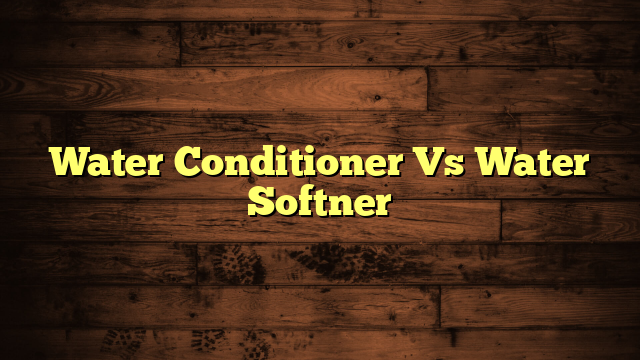How Long Does Water Softner Last?
When you invest in a water softener, understanding its lifespan becomes essential for your home maintenance plan. Typically, you can expect a salt-based softener to last anywhere from 10 to 15 years, while salt-free systems might only hold up for 5 to 10 years. However, various factors, such as water quality and maintenance practices, can greatly impact these numbers. So, what can you do to maximize the life of your system? Exploring the right maintenance tips and recognizing signs of a failing unit can help you navigate this important aspect of home care.
Key Takeaways
- Salt-based water softeners typically last 10-15 years with proper maintenance, while salt-free systems last around 5-10 years.
- Lifespan is influenced by water quality, installation quality, and routine maintenance practices.
- High mineral content in water can shorten the lifespan of water softeners.
- Regularly checking salt levels and cleaning components can significantly extend a softener's lifespan.
- Signs of a failing system include hard water spots, poor soap lathering, and unusual noises.
Understanding Water Softener Lifespan
When it comes to understanding water softener lifespan, several factors come into play. You'll find that water quality is one of the most important elements impacting how long your softener lasts. If your water supply is particularly hard, filled with high levels of minerals like calcium and magnesium, your softener will work harder than usual. This increased demand can shorten its lifespan.
Another significant factor is softener efficiency. Modern softeners are designed to be more efficient, using less salt and energy to perform their job. If you've invested in a high-efficiency model, you could expect a longer lifespan, potentially lasting up to 15 years or more.
Regular maintenance also plays a role; cleaning and replacing filters regularly can keep your system running smoothly.
Lastly, the installation's quality matters. A poorly installed water softener can lead to problems down the road, affecting its longevity.
Types of Water Softeners
When choosing a water softener, you'll come across two main types: salt-based and salt-free softeners.
Salt-based systems use sodium to remove hardness minerals, while salt-free options rely on alternative methods that don't require salt.
Understanding the differences between these systems can help you make the best choice for your home and water quality needs.
Salt-Based Softeners
Understanding salt-based water softeners is essential for maintaining ideal water quality in your home. These systems use various salt types to remove hard minerals like calcium and magnesium, providing you with softer water.
The regeneration process is critical, as it restores the softening capacity after a certain amount of water has been treated.
Here are four key aspects of salt-based water softeners:
- Types of Salt: Common salt types include sodium chloride, potassium chloride, and solar salt. Each has its advantages and disadvantages, depending on your needs.
- Regeneration Cycle: The regeneration process typically occurs every few days, where the system flushes out accumulated minerals and replenishes the salt.
- Maintenance Requirements: Keeping an eye on salt levels is essential to guarantee peak performance. You'll need to refill the salt tank periodically.
- Benefits of Softened Water: Softened water reduces scale buildup in pipes and appliances, enhances soap effectiveness, and improves skin and hair health.
Salt-Free Softeners
Salt-free water softeners offer an alternative for those looking to minimize hard water issues without using traditional salt-based methods. These systems use a different approach, often employing technology like template-assisted crystallization or potassium chloride to reduce hardness.
Here's a quick comparison of salt-free systems with salt-based ones:
| Feature | Salt-Free Softeners |
|---|---|
| Salt-Free Benefits | No sodium added to water |
| Maintenance | Generally lower upkeep |
| Water Usage | Uses less water |
| Effectiveness | Good for scale prevention |
| Taste of Water | Maintains natural taste |
The salt-free benefits are appealing, especially if you're concerned about sodium intake or environmental impact. These systems help prevent scale buildup on plumbing and appliances, which can extend their lifespan. While salt-free systems may not completely remove hardness like traditional softeners, they still provide a viable solution for maintaining water quality.
If you're considering a water softener, evaluating your specific needs and preferences will help you choose the best option. Ultimately, salt-free systems can greatly enhance your water experience while offering unique advantages.
Average Lifespan by Type
When considering how long your water softener will last, it's important to look at the type you have.
Salt-based softeners typically last longer than their salt-free counterparts, so knowing the differences can help you plan for maintenance and replacement.
Let's break down the average lifespan for each type to give you a clearer picture.
Salt-based Softener Lifespan
A salt-based water softener typically lasts between 10 to 15 years, depending on its type and how well it's maintained. Several factors influence this lifespan, including the quality of salt you use and the regeneration frequency of your system.
To help you maximize your softener's longevity, consider these key points:
- Choose High-Quality Salt: Using pure salt reduces impurities that can damage your softener over time.
- Monitor Regeneration Frequency: If your softener regenerates too often, it can wear out faster. Adjust settings based on water usage.
- Regular Maintenance: Routine checks and cleanings can extend your unit's life. Don't skip annual inspections!
- Environment: Keep your system in a climate-controlled space, away from extreme temperatures that may affect performance.
Salt-free Softener Longevity
For those considering alternatives to traditional salt-based systems, understanding the longevity of salt-free water softeners is essential. These systems typically last between 5 to 10 years, depending on the type and the maintenance practices you implement.
While they don't remove hardness minerals like calcium and magnesium, they transform them into a form that doesn't scale your pipes, showcasing several salt-free benefits.
Among the most popular types are template-assisted crystallization (TAC) and electronic descalers. TAC systems often have a longer lifespan due to their simpler technology and minimal moving parts, while electronic descalers may vary more in durability.
Regardless of the type, proper maintenance can greatly extend their lifespan. Regularly checking the system for blockages and ensuring proper water flow is key.
You should also consider the quality of your water supply, as high sediment levels can affect performance.
Factors Affecting Longevity
Several key factors influence how long a water softener lasts, impacting its efficiency and overall lifespan. Understanding these elements can help you make informed decisions about maintenance and replacement.
Here are four crucial factors to take into account:
- Installation Quality: If your water softener isn't installed correctly, it can lead to issues right from the start. Proper installation guarantees peak performance and longevity.
- Water Chemistry: The composition of your water can greatly affect the softener's lifespan. High levels of iron or sediment can cause premature wear and tear.
- Maintenance Routine: Regular maintenance, such as cleaning and checking salt levels, can extend the life of your unit. Neglecting these tasks may lead to more serious problems down the line.
- Water Usage: The amount of water you use daily impacts the workload on your softener. Higher usage means more frequent regeneration cycles, which can wear out the system faster.
Signs of a Failing System
Noticing your water softener's declining performance can be frustrating, but recognizing the signs of a failing system early can save you time and money.
One of the first signs of deterioration is the presence of hard water spots on your dishes or faucets. If you start noticing these spots, it's a clear indication that your water softener isn't functioning as it should.
Another common issue is soap not lathering well, which can point to performance issues. If your shampoos or detergents don't seem to work effectively, it might be time to check your system.
Moreover, a sudden increase in salt usage can signal that your softener is struggling to regenerate properly.
Pay attention to any unusual noises coming from the unit as well; grinding or hissing sounds can indicate mechanical problems.
Finally, if you're experiencing frequent system failures or error messages, don't ignore those warning signs. Addressing these issues promptly can prevent further damage to the system and guarantee that you continue enjoying the benefits of soft water in your home.
Maintenance Tips for Longevity
Maintaining your water softener is essential for guaranteeing its longevity and ideal performance. By committing to routine maintenance, you can keep your system running smoothly and avoid costly repairs.
Here are some cleaning tips to help you maintain your water softener effectively:
- Check Salt Levels Regularly: Verify the salt level in the brine tank is sufficient. Refill it when it gets low to avoid system malfunctions.
- Clean the Brine Tank Annually: Remove any sediment build-up and clean the tank with a mixture of water and vinegar to prevent clogs and maintain efficiency.
- Inspect the Resin Bed: Every few years, consider inspecting the resin bed for clogs or damage. You may need to replace the resin if it's not performing well.
- Monitor Water Quality: Keep an eye on your water's hardness levels. If you notice changes, it may indicate your softener needs attention or adjustment.
Cost of Replacement Units
When it comes to the cost of replacement water softener units, understanding your options can help you make an informed decision. The replacement costs can vary widely depending on the type and brand of the unit you choose. Basic models may start around $400, while higher-end systems can reach $2,000 or more. This price typically includes installation, but you should always confirm with your provider.
Don't forget to take into account unit warranties, as they can greatly impact your long-term expenses. Many manufacturers offer warranties ranging from 5 to 10 years, which can provide peace of mind and financial protection against defects and malfunctions. Investing in a unit with a solid warranty can save you money down the road, especially if repairs are needed.
Additionally, think about the ongoing maintenance costs associated with each unit type. While the initial investment is important, understanding the total cost of ownership, including replacement costs and maintenance, will give you a clearer picture of what you're really paying.
When to Call a Professional
Sometimes, it's tough to know when to call a professional for your water softener. You might feel confident tackling minor issues, but some situations require a professional assessment.
Here are four signs that indicate it's time to reach out for help:
- Persistent Issues: If you're constantly dealing with hard water problems despite regular maintenance, it's a red flag.
- Strange Noises: Unusual sounds, like grinding or hissing, coming from your softener can suggest underlying mechanical issues that need expert repair options.
- Water Quality Changes: If the water's taste, smell, or appearance changes abruptly, a professional can help identify and resolve the problem.
- Age of the Unit: If your water softener is nearing its expected lifespan and starts showing signs of wear, a professional assessment can determine if repairs are worth it or if a replacement is necessary.
Frequently Asked Questions
Can Water Softeners Be Repaired Instead of Replaced?
Yes, you can repair water softeners instead of replacing them. Repair costs often depend on the issue. Regular maintenance tips, like cleaning and checking components, can extend your unit's life and save you money.
How Does Water Hardness Affect Softener Lifespan?
Think of water hardness as a relentless foe. The tougher the water, the harder your softener works, shortening its lifespan. So, if you've got hard water, expect your softener to age faster than you'd like.
Do Water Softeners Need Special Cleaning Products?
Water softeners don't need special cleaning products. Regular maintenance tips include cleaning your system every few months. Adjust cleaning frequency based on your water's hardness to guarantee peak performance and longevity of your softener.
Are There Eco-Friendly Water Softener Options Available?
Sure, you could keep pouring salt into your softener, but why not explore eco-friendly options? Salt-free alternatives exist, reducing environmental impact while still giving you soft water. Your conscience—and planet—will thank you!
Can a Water Softener Improve Water Taste?
Yes, a water softener can enhance your water taste. By removing undesirable minerals like calcium and magnesium, it greatly improves taste, making your drinking and cooking water more enjoyable and revitalizing. You'll notice the difference!
Conclusion
To summarize, the lifespan of your water softener can vary widely, but with proper care, salt-based systems can last up to 15 years. Notably, about 85% of U.S. households have hard water, making water softeners essential for many. By understanding the factors that influence your unit's longevity and keeping up with maintenance, you can guarantee your investment serves you well for years to come. Regular check-ups can save you money and hassle down the line!







